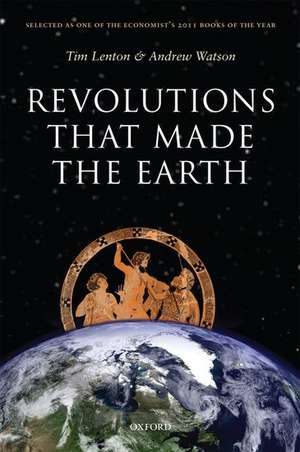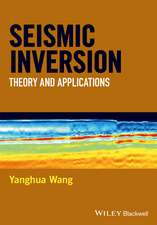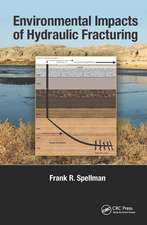Revolutions that Made the Earth
Autor Tim Lenton, Andrew Watsonen Limba Engleză Paperback – 11 apr 2013
| Toate formatele și edițiile | Preț | Express |
|---|---|---|
| Paperback (1) | 253.77 lei 31-38 zile | |
| OUP OXFORD – 11 apr 2013 | 253.77 lei 31-38 zile | |
| Hardback (1) | 457.04 lei 31-38 zile | |
| OUP OXFORD – 20 ian 2011 | 457.04 lei 31-38 zile |
Preț: 253.77 lei
Nou
Puncte Express: 381
Preț estimativ în valută:
48.57€ • 50.52$ • 40.70£
48.57€ • 50.52$ • 40.70£
Carte tipărită la comandă
Livrare economică 03-10 martie
Preluare comenzi: 021 569.72.76
Specificații
ISBN-13: 9780199673469
ISBN-10: 0199673462
Pagini: 440
Ilustrații: 80 b/w illustrations
Dimensiuni: 157 x 234 x 22 mm
Greutate: 0.76 kg
Editura: OUP OXFORD
Colecția OUP Oxford
Locul publicării:Oxford, United Kingdom
ISBN-10: 0199673462
Pagini: 440
Ilustrații: 80 b/w illustrations
Dimensiuni: 157 x 234 x 22 mm
Greutate: 0.76 kg
Editura: OUP OXFORD
Colecția OUP Oxford
Locul publicării:Oxford, United Kingdom
Recenzii
Lenton and Watson have written a remarkable and timely book which is both entertaining and impeccably researched from the beginning I felt both engaged and enlightened... With its academic rigour and, at the same time, its accessibility, the authors have clearly succeeded in their aim of writing scholarly popular science. As such, it should inspire us to learn from how the Earth system has evolved in the past and face up to the final question: Are we as yet sufficiently grown up to take responsibility for a whole planet? One thing is for sure: Over the next century we will find out.
Worth close study for anyone with more than a passing interest in the Earth sciences, from geology to climatology, and for anyone curious about why this planet is alive whilst all the other ones we know about are dead.
Lenton and Watson's thought-provoking book is the latest in a distinguished line of works that have altered our perception of the planet.
This book is a stimulating read that involves its audience and challenges us to enlarge our awareness of many branches of human knowledge. It embraces the ethical question of how we can overcome our selfish genes to co-operate with our fellow human beings and recognise our symbiotic relationship with the Earth ecosystem that sustains us.
An exciting, timely, scholarly, and innovative book.
[an] interesting and provocative read.
Worth close study for anyone with more than a passing interest in the Earth sciences, from geology to climatology, and for anyone curious about why this planet is alive whilst all the other ones we know about are dead.
Lenton and Watson's thought-provoking book is the latest in a distinguished line of works that have altered our perception of the planet.
This book is a stimulating read that involves its audience and challenges us to enlarge our awareness of many branches of human knowledge. It embraces the ethical question of how we can overcome our selfish genes to co-operate with our fellow human beings and recognise our symbiotic relationship with the Earth ecosystem that sustains us.
An exciting, timely, scholarly, and innovative book.
[an] interesting and provocative read.
Notă biografică
Tim Lenton is a Professor at the University of Exeter. His research focuses on understanding the behaviour of the Earth as a whole system, especially through the development and use of Earth system models. After gaining a BA in Natural Sciences at Cambridge University, he investigated what regulates the nutrient balance of the ocean and the oxygen content of the atmosphere as a PhD student of Andrew Watson. He also worked closely with James Lovelock developing the Gaia theory and trying to reconcile it with evolutionary theory. Moving to the Centre for Ecology and Hydrology in Edinburgh, he focused on understanding the feedbacks between the carbon cycle and the Earth's climate. Having returned to the University of East Anglia in 2004, his work identifying climate tipping points won the Times Higher Education Award for Research Projects of the Year 2008. He holds a number of other awards and fellowships.Andrew Watson holds a Royal Society Research Professorship at the University of East Anglia. His career has spanned planetary and atmospheric sciences, oceanography, and climate, giving him a strong interest in the evolution of the Earth system as a whole. After obtaining a BSc in physics from Imperial College, he investigated the history of oxygen in Earth's atmosphere as a PhD student of James Lovelock. He worked on NASA's Pioneer Venus space mission at the University of Michigan. Returning to England and the marine research laboratories in Plymouth, he developed a new method of tracing large scale water movements. He became a professor at the University of East Anglia in 1996, was elected a Fellow of the Royal Society in 2003, and became a Royal Society Research Professor in 2009. He holds a number of other fellowships and awards.








